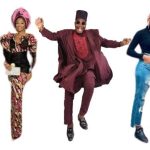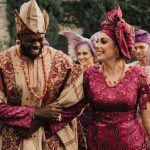Africa is rich in history, culture, and traditions, and one of the most fascinating tribes is the Zulu people of South Africa. Known for their resilience, vibrant customs, and deep-rooted history, the Zulu culture is a living testament to African heritage. If you’ve ever been curious about what makes the Zulu unique, let me take you on a deep dive into their traditions, beliefs, and way of life. Grab a cup of tea or a chilled drink, because this is going to be an enriching journey.
A Brief Introduction to the Zulu People
The Zulu are one of the largest ethnic groups in South Africa, with their population exceeding 11 million. They primarily inhabit the province of KwaZulu-Natal, but their influence extends far beyond this region. The Zulu language, isiZulu, is widely spoken in South Africa, making it one of the country’s 11 official languages.
Historically, the Zulu rose to prominence under the legendary leadership of King Shaka Zulu in the early 19th century. Known for his military genius, Shaka Zulu transformed the Zulu nation into a powerful and united kingdom. His influence laid the foundation for the vibrant Zulu culture that thrives today.
1. Traditional Attire: A Display of Pride and Identity
One of the most striking aspects of Zulu culture is their traditional attire. Whether it’s for ceremonies, festivals, or everyday wear, their clothing tells a story.
For Men: Zulu men wear leather kilts, animal-skin belts, and beaded accessories during cultural events. The headgear, known as umqhele, is made of cowhide and feathers, symbolizing strength and masculinity.
For Women: Zulu women’s attire changes based on their marital status. Single women wear short skirts with beads, while engaged women cover their chests to signify commitment. Married women, on the other hand, wear longer skirts, blouses, and headscarves.
The intricate beadwork is not just for decoration; it carries messages. Each color and pattern has a meaning, often related to love, relationships, or emotions. For instance, blue represents fidelity, while red signifies love and passion.
2. Zulu Language: A Melody of Clicks and Tones
IsiZulu is not just a language; it’s a musical experience. The use of click consonants, which can be challenging for non-native speakers, adds a unique rhythm to the language. There are three main click sounds in isiZulu:
- Dental Click (c): Sounds like a “tsk-tsk” expression.
- Lateral Click (x): Similar to the sound made when calling a horse.
- Alveolar Click (q): Resembles a popping sound.
Beyond the clicks, the language is rich in proverbs and idioms. For example, “Umuntu ngumuntu ngabantu” translates to “A person is a person through other people,” emphasizing the value of community and interconnectedness.
3. The Role of Ancestors in Zulu Beliefs
Zulu spirituality revolves around the veneration of ancestors, known as amadlozi or abaphansi. The Zulu believe that their ancestors act as intermediaries between them and God (uNkulunkulu).
Rituals and Offerings: Ancestors are honored through ceremonies involving beer, animal sacrifices, and traditional songs. These rituals are performed to seek guidance, protection, or blessings.
Dreams: Dreams are considered a powerful medium through which ancestors communicate. A significant dream might prompt a family to consult a diviner (sangoma).
This deep respect for ancestry shapes the Zulu worldview, fostering a sense of identity and continuity.
4. Traditional Zulu Cuisine: A Feast for the Soul
Food is central to Zulu gatherings, and their cuisine is as hearty as their hospitality. Some popular dishes include:
Pap: A maize meal porridge often served with meat or vegetables.
Umngqusho: A dish made of samp (crushed corn) and beans, slow-cooked to perfection.
Chakalaka: A spicy vegetable relish that pairs well with just about anything.
Amadumbe: A type of sweet potato that’s boiled or roasted.
Traditional beer, brewed from sorghum, is also a staple at ceremonies and social gatherings. It’s not just a drink but a symbol of unity and celebration.
5. Music and Dance: The Heartbeat of Zulu Culture
When you think of Zulu culture, the image of energetic dancers and rhythmic drumming immediately comes to mind. Music and dance are integral to Zulu life, serving as a form of expression and storytelling.
Indlamu Dance: This is the famous Zulu war dance characterized by high kicks, stomping, and synchronized movements. Men perform it in traditional warrior attire, creating an electrifying spectacle.
Umshado Dance: Performed at weddings, this dance celebrates love and union.
Instruments: The Zulu use drums (izigubhu), flutes (umqangala), and stringed instruments (umakhweyana) to accompany their songs.
The songs often convey messages about history, morality, or communal values, making them both entertaining and educational.
6. The Zulu Royal Family and Leadership Structure
The Zulu monarchy remains a central figure in South African culture. The king, referred to as Ingonyama, is both a political and spiritual leader. The royal family plays a vital role in preserving Zulu traditions and addressing community issues.
Traditional Councils: These councils work alongside modern government structures, ensuring that Zulu customs are respected in decision-making processes.
Cultural Events: The annual Reed Dance (Umkhosi Womhlanga) is one of the most famous royal ceremonies. Young women present reeds to the king, symbolizing purity and unity.
7. The Power of Storytelling in Zulu Culture
Oral tradition is the backbone of Zulu heritage. Stories, myths, and folktales are passed down from generation to generation, preserving history and imparting lessons.
A popular folktale is the story of Unkulunkulu, the first human and creator, who emerged from a reed. Such tales are not just entertaining but also provide insights into Zulu beliefs about life, nature, and morality.
8. Zulu Healing Practices: A Blend of Nature and Spirituality
The Zulu have a rich tradition of herbal medicine and spiritual healing. Two key figures in this realm are:
Inyanga: A herbalist who uses plants and natural remedies to treat ailments.
Sangoma: A spiritual healer who communicates with ancestors to diagnose and solve problems.
These healers play a crucial role in Zulu society, offering guidance on health, relationships, and even politics.
9. Zulu Architecture: Homes Reflecting Harmony
Traditional Zulu homes, known as umuzi or kraal, are circular huts made of thatch and mud. The layout of a Zulu homestead is symbolic:
- The central cattle kraal represents wealth and sustenance.
- The huts surrounding it are arranged according to family hierarchy and function.
- This architectural style fosters a sense of community while blending seamlessly with the natural environment.
10. Modern Zulu Culture: A Balance of Tradition and Progress
While deeply rooted in tradition, the Zulu people have adapted to modern life without losing their cultural essence. Many Zulus hold prominent positions in business, politics, and the arts, contributing to South Africa’s development.
Events like Heritage Day and cultural festivals celebrate Zulu identity, reminding younger generations of their rich heritage.
Conclusion
Zulu culture is a tapestry woven with resilience, pride, and creativity. From their vibrant attire and rhythmic dances to their spiritual beliefs and culinary delights, the Zulu offer a glimpse into Africa’s soul.
As Nigerians, we might notice similarities in the emphasis on family, respect for elders, and the celebration of traditions. It’s a reminder that, despite our differences, African cultures share common threads that unite us.
Next time you hear the rhythmic beats of a Zulu drum or see their intricate beadwork, take a moment to appreciate the depth of their culture. The Zulu are not just a people; they are a legacy.







Leave a Reply